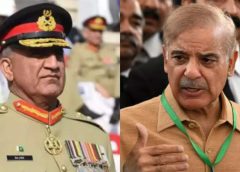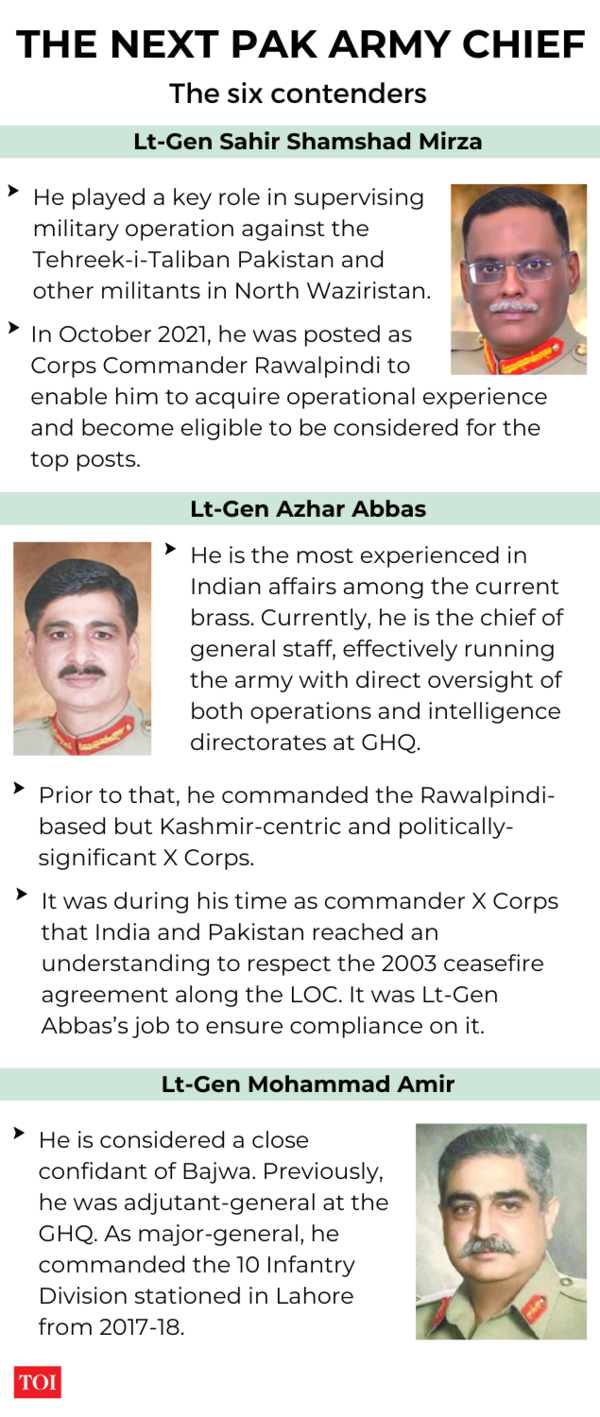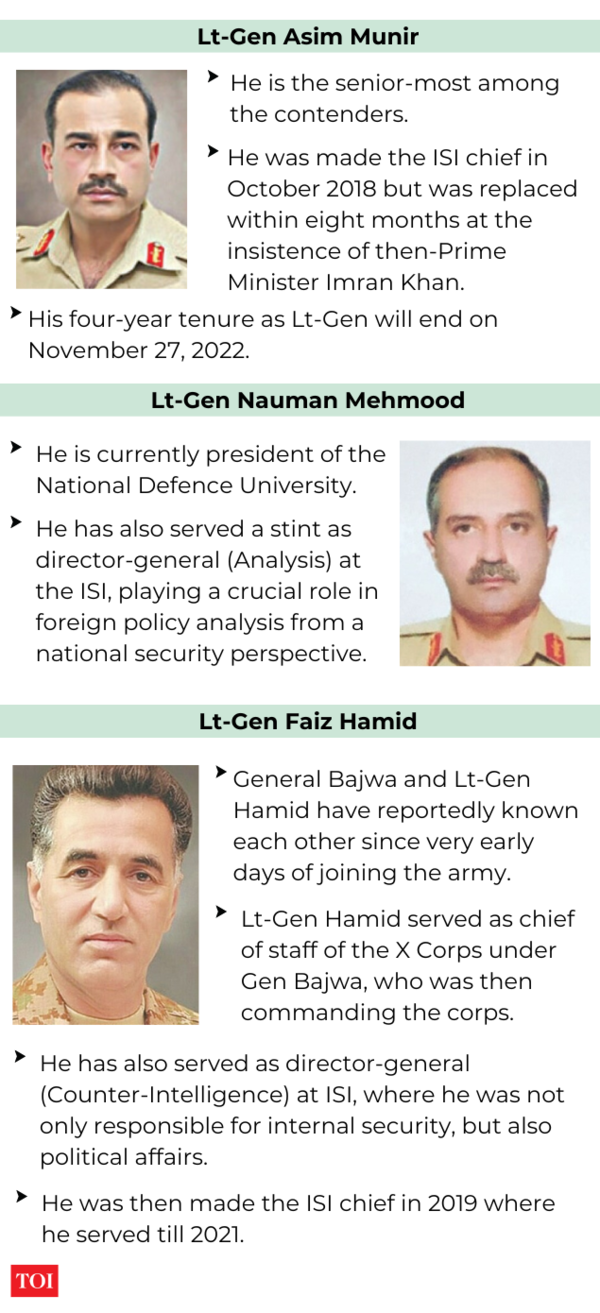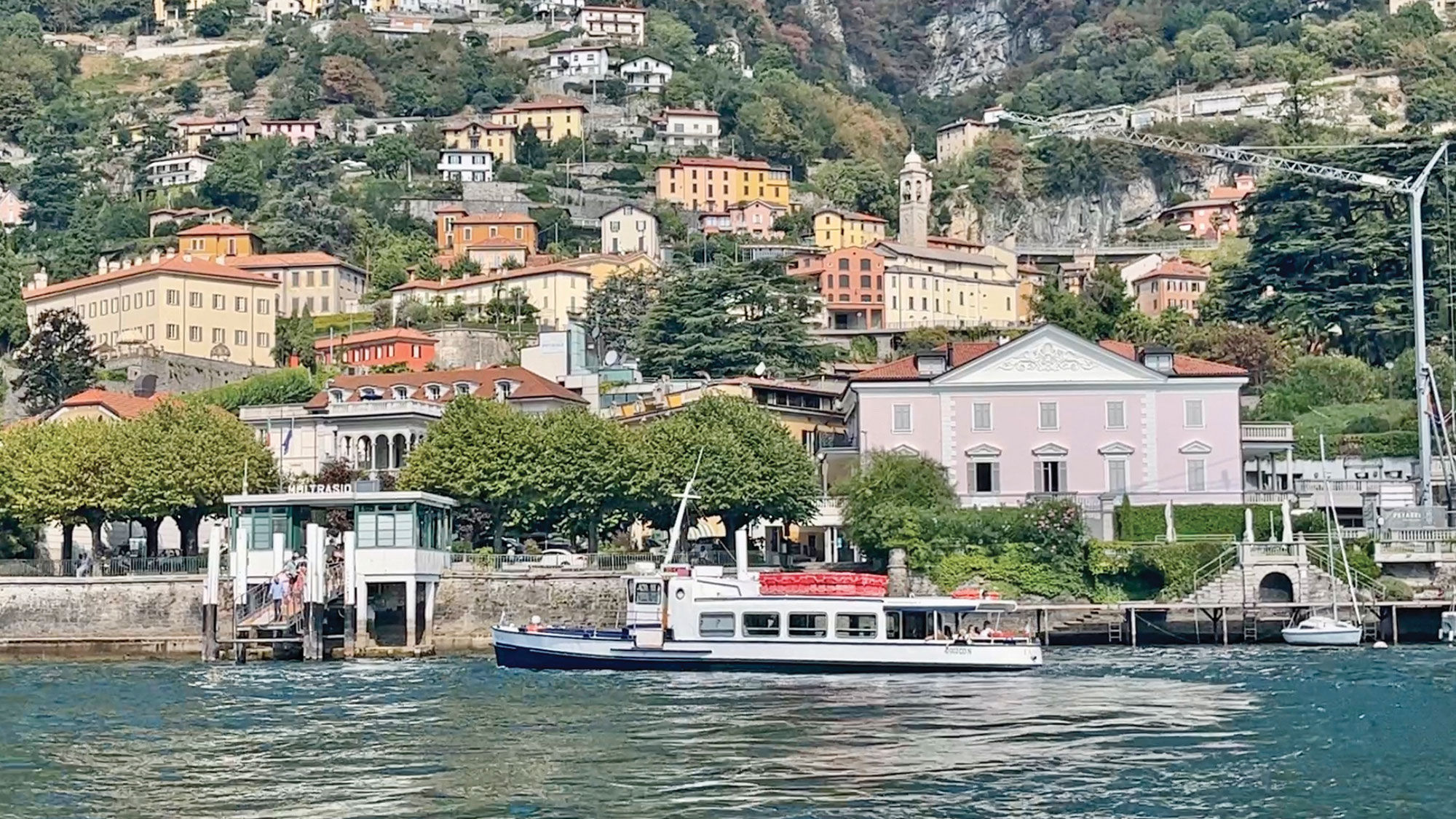
Explained: Who will replace Pakistan army chief Qamar Javed Bajwa and why it matters to India
[ad_1]
The present army chief, General Qamar Javed Bajwa (61), was appointed in 2016 and is set to retire in the last week of November. The army chief’s term is for 3 years but Bajwa was given a three-year extension in 2019 by ousted PM Imran Khan.
A senior Pakistan Muslim League-Nawaz (PML-N) leader — a member of the federal cabinet — hinted that Sharif may take a decision by mid-September.
Next in line
According to Article 243(3) of the Pakistan Constitution, the president appoints the services chiefs on the recommendation of the PM.
Of the ten army chiefs the country has had since 1972, five were appointed by Shehbaz Sharif’s elder brother, Nawaz Sharif, in separate tenures as PM.
The tradition is that General Headquarters sends a list of the four to five senior-most lieutenant-generals, along with their personnel files, to the Ministry of Defence, which then forwards them to the PM to pick the officer he finds best suited to the role.
The credentials of the generals are then deliberated upon either at the PMO or in the cabinet. The matter comes down to the PM’s ‘informal consultation’ with the outgoing army chief, his own perceptions and his discussions with his closest advisors.
There are six contenders for the post: Lt-Gen Asim Munir, Lt-Gen Sahir Shamshad MirzaLt-Gen Azhar Abbas, Lt-Gen Nauman Mehmood, Lt-Gen Faiz Hamid and Lt-Gen Mohammad Amir.


Why it matters to India
The Pakistan army is widely referred to as the ‘deep state’ or ‘the establishment’ as it has ruled the country directly or indirectly — through martial law, emergency or proxy — for most of its 75 years of existence. Officially, the military has ruled Pakistan for 36 years since its independence.
Since 1947, Pakistan has been ruled by four different military rulers under three different military coups (1958-71, 1977-88 and 1999-2008).
Though Pakistan has since 2008 seen fairly democratic transitions of power, the influence of the army on the decision-making bodies has not reduced.
Top army officials are notorious for pulling the strings behind the scenes. Pakistani media often used to refer to erstwhile Imran’s government as a ‘hybrid regime’.
The opinion and suggestions of the army brass carry massive weight in important appointments as well as domestic and international policies.
Army in civil society
The army also commands massive sympathy and respect from the general public.
In times of national calamities and natural disasters, the army has provided medical assistance and logistics, and has also helped in rehabilitation and reconstruction of cities and towns while distributing relief goods and military rations to affected civilians.
Since 1948, the army has been involved in providing power to affected areas, building dams, and construction of towns and cities, and conducting rescue operations.
Due to the crucial role that the army plays in such instances, active-duty officers are often appointed to head civilian departments.
As a result, the army carries immense goodwill among civilians and its decisions are often heartily approved by the general public, including takeover of a democratically elected government.
The army also controls, manages, and runs a large number of business enterprises and conglomerates. Their total revenue was estimated to be US$ 20 billion in 2007–08.
(With inputs from Dawn and agencies)
[ad_2]
Source link


